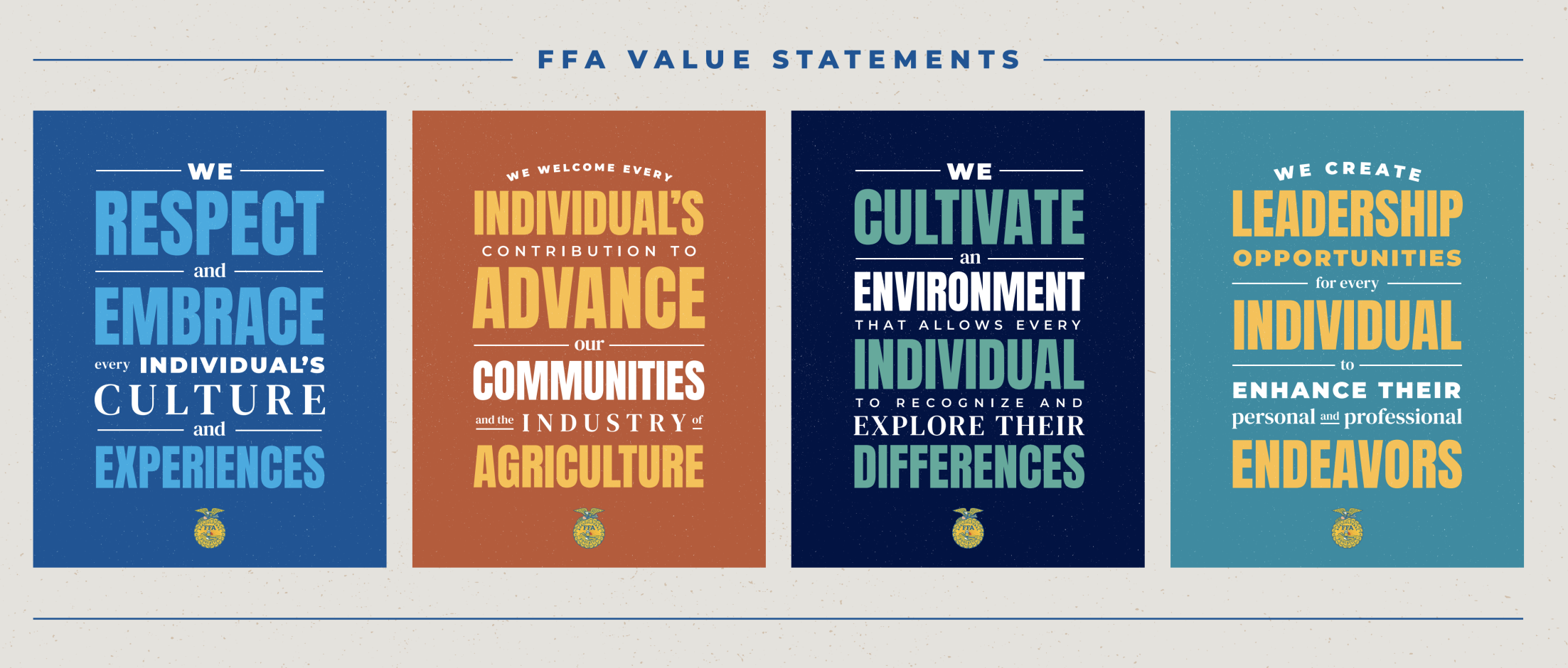Recently, the National FFA Organization announced its participation in the Advancing Racial Equity Community of Practice Initiative. This initiative is made up of a group of nonprofit organizations working toward advancing racial equity.
National FFA will be working to include those students who may not have thought of FFA as an option before now and helping current FFA members to learn skills that will help them adjust to an even more diverse workplace.
“As of our last membership year about 27% of our members would identify as a person of color,” said Scott Stump, National FFA CEO. “Across the nation, in the schools that we’re in, the rate of students who identify as a person of color is about 47%.”
Partnering with nine other states including Idaho, Illinois, Iowa, Kentucky, Minnesota, New York, Ohio, Pennsylvania, and Wisconsin, National FFA is working toward growing a more equitable and inclusive organization.
“We know that we have an opportunity to really expand access and invite students that have not thought about agriculture to be a part of the future food solution,” Stump said.
To bolster the organization’s efforts, the board of directors developed a set of four value statements. Those statements include the following:
• We respect and embrace every individual’s culture and experiences.
• We welcome every individual’s contribution to advance our communities and the industry of agriculture.
• We cultivate an environment that allows every individual to recognize and explore their differences.
• We create leadership opportunities for every individual to enhance their personal and professional endeavors.
These statements, which were ratified by National FFA student delegates, have been made into a poster series and sent to agricultural educators across the nation.
“It’s been fun to watch on Facebook the different photos that come up of teachers that are proudly displaying then and in essence then on a very local level make sure that their program is a place where all students can belong,” Stump said.
Stump said the organization has been working to expand its membership—in terms racial diversity and under-represented populations—since the mid- to late-1990s.
“We’re actively creating that space so students that historically have not been in agricultural education and FFA can find a place,” he said.
Those cultures and experiences will be needed to feed a population that will continue to grow and need a safe and reliable food supply.
“We’re going to need a width and breadth of talent in this industry to make sure that we are able to meet that challenge of sustainably feeding and fueling the world,” Stump said.
In spring 2022, National FFA used those core value statements to help make its priorities clear. Leaders want to expand access to their programs and even reach into communities where they have not had a chapter to offer an invitation into the organization. Their second priority is preparing their members to success in diverse and inclusive workplaces.
“As we look at the workplace 10, 12, 15 years from now, in nearly every case across the nation, it’s going to be a very diverse environment,” he said. “So ensuring, as we have since 1917 when agriculture education came into being and 1928 when FFA came into being, we are the talent pipeline for the industry of agriculture.”
FFA members will have to have the ability to step into diverse workplaces and collaborate with and include a wide range of beliefs to solve ever-changing issues and keep agriculture going strong. That is what Stump sees as the contribution of National FFA in the future.
“The best part of our work happens at the local chapter level and states are in the best position to really assist teachers and school leaders in helping students get the skills they need to succeed in the emerging workplaces,” Stump said.
Jennifer Theurer can be reached at 620-227-1858 or [email protected].




